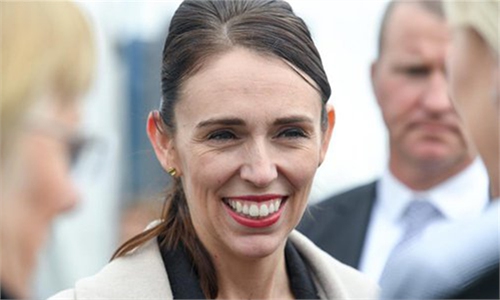Ardern delivers welfare boost in annual budget as NZ economy rebounds
New Zealand on Thursday lifted welfare benefit rates and promised billions of dollars more towards addressing rising inequality in its annual budget, as it predicted smaller deficits and a faster economic recovery from COVID-19.
The budget for the 2021 fiscal year allocated funds towards housing, healthcare, education and infrastructure, while also targeting issues like child poverty, climate change and welfare of the indigenous Maori.
The highlight, however, was a hike in the weekly benefit rates by up to NZ$55 per adult, which the government said was the largest income increase in a generation.
"Previous economic downturns have made inequality worse. We're taking a different approach," Prime Minister Jacinda Ardern said in a statement, releasing the "Wellbeing" budget.
"By investing in those who need it the most, we are driving the recovery by reducing need, at the same time as providing stimulus for our economy."
New Zealand's economy has seen a rapid rebound from the COVID-19 pandemic, but ample fiscal and monetary stimulus in 2020 has exacerbated long-standing issues of inequality, making it arguably the biggest political challenge facing Ardern's center-left government in its second term in office.
Critics have slammed policies that widened the wealth gap and had called on the government to use this budget to tackle these issues.
The Treasury predicted a budget deficit of NZ$15.127 billion ($10.84 billion) for the fiscal year ending June, compared to the NZ$21.576 billion seen in its half-year fiscal update in December.
The deficit will peak at 5.3 percent of GDP in June 2022 before declining to 0.6 percent of GDP by June 2025.
Net debt will peak at 48 percent of GDP in 2023 compared to the 52.6 percent forecast made in December, according to the budget.
New Zealand's GDP was expected to reach 2.9 percent in 2021 and gradually increase to 4.4 percent by 2023.
Finance Minister Grant Robertson said the budget strikes a balance between "securing the economic recovery and keeping a lid on the debt."
The budget for the 2021 fiscal year allocated funds towards housing, healthcare, education and infrastructure, while also targeting issues like child poverty, climate change and welfare of the indigenous Maori.
The highlight, however, was a hike in the weekly benefit rates by up to NZ$55 per adult, which the government said was the largest income increase in a generation.
"Previous economic downturns have made inequality worse. We're taking a different approach," Prime Minister Jacinda Ardern said in a statement, releasing the "Wellbeing" budget.
"By investing in those who need it the most, we are driving the recovery by reducing need, at the same time as providing stimulus for our economy."
New Zealand's economy has seen a rapid rebound from the COVID-19 pandemic, but ample fiscal and monetary stimulus in 2020 has exacerbated long-standing issues of inequality, making it arguably the biggest political challenge facing Ardern's center-left government in its second term in office.
Critics have slammed policies that widened the wealth gap and had called on the government to use this budget to tackle these issues.
The Treasury predicted a budget deficit of NZ$15.127 billion ($10.84 billion) for the fiscal year ending June, compared to the NZ$21.576 billion seen in its half-year fiscal update in December.
The deficit will peak at 5.3 percent of GDP in June 2022 before declining to 0.6 percent of GDP by June 2025.
Net debt will peak at 48 percent of GDP in 2023 compared to the 52.6 percent forecast made in December, according to the budget.
New Zealand's GDP was expected to reach 2.9 percent in 2021 and gradually increase to 4.4 percent by 2023.
Finance Minister Grant Robertson said the budget strikes a balance between "securing the economic recovery and keeping a lid on the debt."

